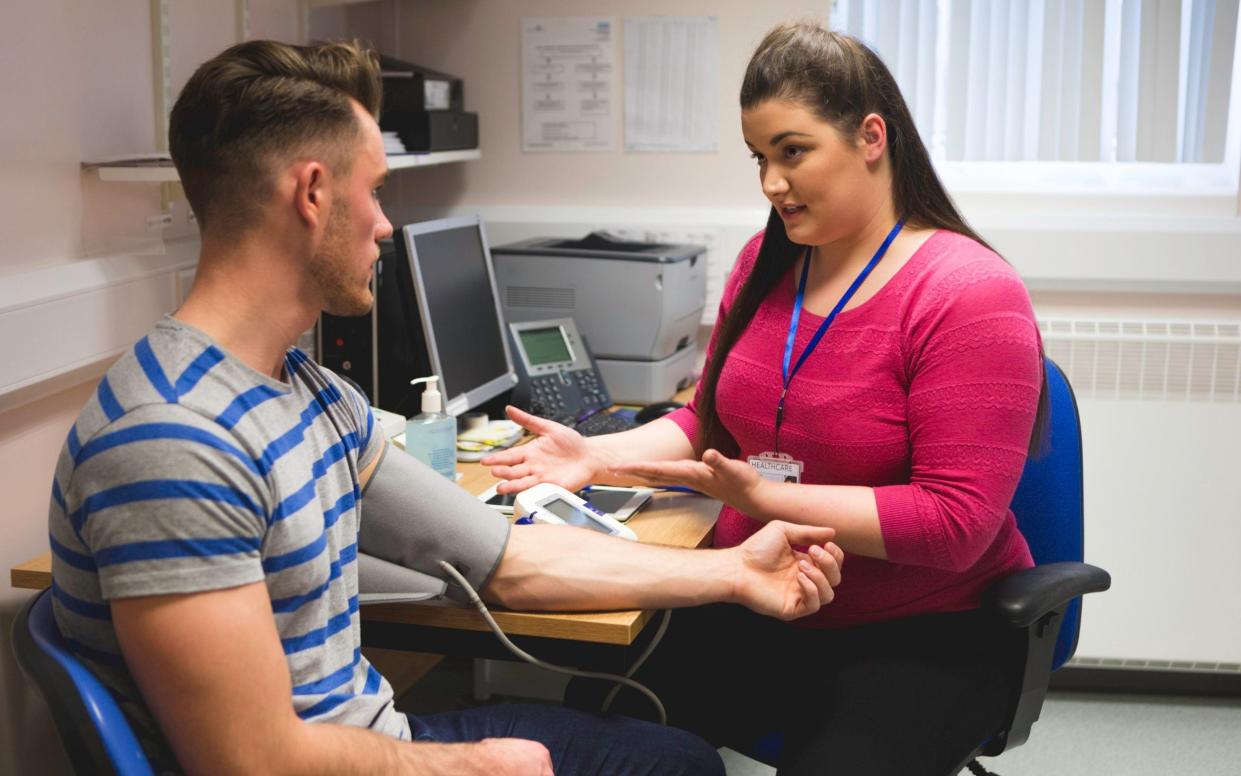GPs demand more cash to see patients face-to-face

GPs have demanded more money to return to face-to-face appointments, as official documents revealed the full impact on patients of not being able to see doctors during the pandemic.
Dr Richard Vautrey, the chairman of the BMA’s General Practitioners Committee, complained that the funds raised through the increase to National Insurance would not go to family doctors.
He said that without money to pay for more GPs and more space in surgeries, face-to-face appointments could not return to pre-pandemic levels.
It came as an official assessment by the Department of Health and Social Care (DHSC) and the Office for National Statistics (ONS) revealed the “unintended consequences” of resorting to remote consultations.
More than 175,000 diagnoses of key conditions are estimated to have been missed in 2020, the document states.
Dr Vautrey insisted that patients were wrong to think they have received “worse care” as a result of not seeing a doctor in person during the pandemic.
But he said extra funding, like that recently provided by the Government through a manifesto-breaking tax rise to clear the hospital backlog, was needed.
“We want to see our patients too,” he told BBC Radio 4’s Today programme.
“And we need the number of GPs to increase to do that, we need space within our surgeries to be able to do that safely. But we want to see our patients, we want to speak to our patients when it’s necessary to do so.”
He added: “They’re not investing in general practice as seriously as they need to. We’ve seen the Government come forward to deal with the backlog in secondary care, we haven’t seen the same commitment to general practice.”
Speaking to The Telegraph, Dr Vautrey said the Government needed to recognise “that there is a huge need within the NHS as a whole, and general practice and community-based services are part of that whole”.
The official analysis presented to the Government’s Scientific Advisory Group for Emergencies (Sage) last week revealed that among the missed diagnoses in 2020 there were 39,227 diabetes cases, 44,216 cases of Chronic Obstructive Pulmonary Disease, (COPD), 38,167 cases of an irregular heartbeat, 20,561 cases of heart disease, 14,322 strokes and 18,640 cases of heart failure.
The most significant fall in diagnoses was in COPD, the name for a group of lung conditions that cause breathing difficulties, where 51 per cent fewer cases were identified in 2020 versus 2019.
The number of diabetes diagnoses also dropped by almost a fifth (19 per cent), which the report states is “likely to be a combination of factors including difficulty in diagnosing via a teleconsultation and changes to health-seeking behaviour”.
The conditions listed are most commonly picked up through GP appointments and confirmed through diagnostic tests, both of which have suffered delays and restricted access over the last year.
Around half of the conditions are also typically picked up in routine health checks, where everyone over the age of 40 is invited for a check-up every five years.
These routine assessments were all put on pause during the pandemic.
Working with organisations including the Institute for Fiscal Studies, the Health Foundation, and the Royal College of General Practitioners, the report analysed multiple data sets to assess the impact of Covid-19.
The drop in diagnoses was likely “partly driven” by patients not coming forward but also doctors cutting face-to-face access, the report states.
“In some cases this [delayed diagnosis] may be the consequence of not being able to diagnose via teleconsultations or due to the steer not to use certain diagnostic techniques because of a risk of infection,” it states.
An NHS spokesperson said: “Every GP practice must provide face-to-face as well as telephone and online appointments and continuing to offer all of these methods of consultation is part of making primary care as accessible as possible.
“Record numbers of people are now training to become GPs, with up to 4,000 new starters this year and the NHS invested £270m to expand general practice capacity during the pandemic on top of rising investment over the past five years.”
The BMA said it would read and respond to the government analysis in due course.

 Yahoo News
Yahoo News 
